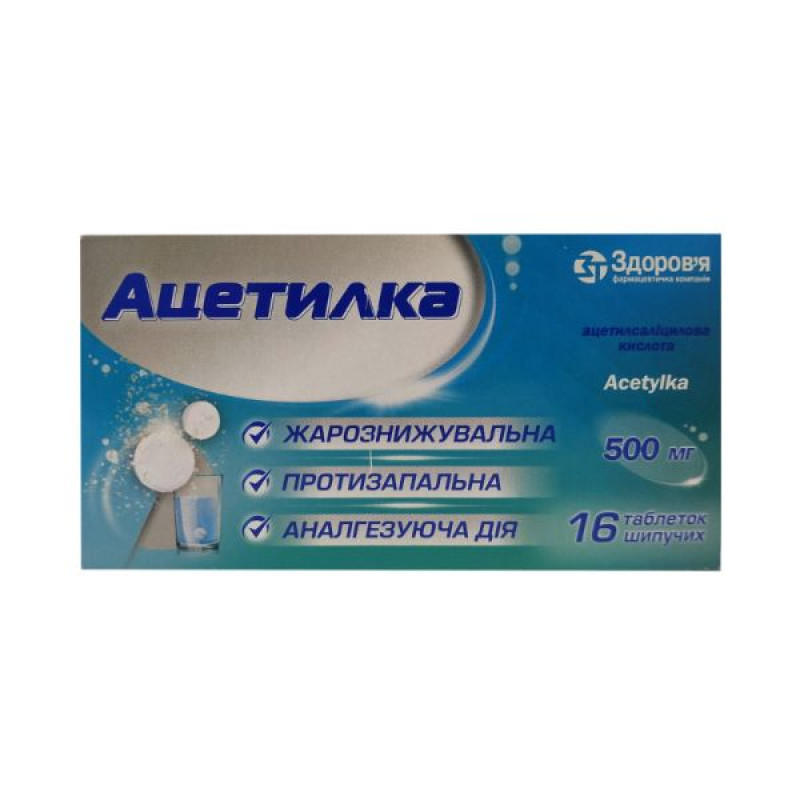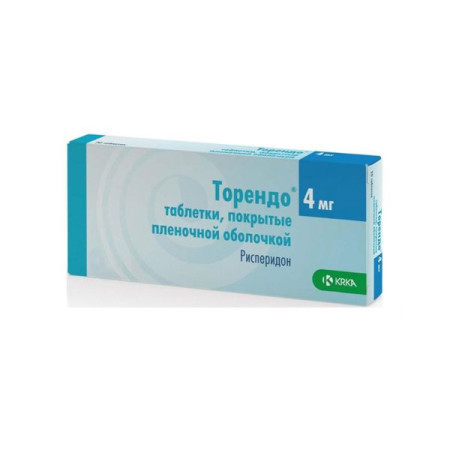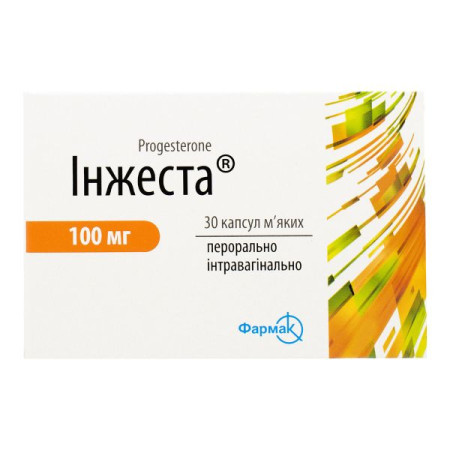Acetylka effervescent tablets 500 mg No. 16

Acetyl is used:
For the symptomatic treatment of headache, toothache; sore throat caused by colds; algodysmenorrhea; muscle and joint pain; back pain; moderate pain caused by arthritis. For the symptomatic relief of pain and fever in colds or acute respiratory diseases.Composition
Active ingredient: acetylsalicylic acid.
1 tablet contains 500 mg of acetylsalicylic acid.
Excipients: sodium bicarbonate; sodium carbonate; citric acid; sodium citrate; aspartame (E 951); crospovidone; povidone; "Lemon" flavoring containing maltodextrin, gum arabic (E 414), citric acid.
Contraindication
Individual hypersensitivity to acetylsalicylic acid, other salicylates or any component of the drug; phenylketonuria, since the drug contains aspartame; metabolic or respiratory alkalosis, hypocalcemia, decreased acidity of gastric juice, since the drug contains sodium bicarbonate and citric acid; bronchial asthma caused by the use of acetylsalicylic acid or other nonsteroidal anti-inflammatory drugs; exacerbation of gastric and duodenal ulcers; congenital (hemophilia) or acquired hemorrhagic diseases; increased risk of bleeding; severe liver failure; severe renal failure; severe heart failure resistant to treatment; simultaneous use with methotrexate in doses exceeding 15 mg/week; simultaneous use of high doses of the drug with indirect anticoagulants, especially in the treatment of rheumatic diseases.Method of application
Adults and children over 15 years of age (with a body weight of over 50 kg).
Usually take 1 effervescent tablet of 500 mg, if necessary, repeated use is possible after 4 hours. In case of more intense pain or hyperthermia, 2 tablets can be used at the same time, but repeated use should be no earlier than after 4 hours, with this dosage regimen - take no more than 6 effervescent tablets per day. Systematic intake will avoid fluctuations in temperature reaction.
The maximum daily dose is 3 g, i.e. 6 effervescent tablets per day.
Application features
Pregnant women
During the first and second trimesters of pregnancy, drugs containing acetylsalicylic acid should not be prescribed, except in cases of extreme need.
Children
The drug should be used in children over 15 years of age.
Drivers
Not installed.
Overdose
Chronic salicylate poisoning may be asymptomatic or have no specific symptoms. Moderate salicylate intoxication, or salicylism, usually develops only after repeated use of high doses.
Side effects
Gastrointestinal: Dyspepsia, epigastric pain and abdominal pain; in isolated cases, gastrointestinal inflammation, erosive-ulcerative lesions of the gastrointestinal tract, which may in isolated cases cause gastrointestinal bleeding and perforation with corresponding laboratory and clinical manifestations.
Rarely - transient hepatic failure with increased liver transaminase levels.
On the part of the blood system. Due to its antiplatelet effect on platelets, acetylsalicylic acid may increase the risk of bleeding. Bleeding such as intraoperative hemorrhages, hematomas, bleeding from the genitourinary system, epistaxis, bleeding from the gums has been observed; rarely or very rarely, serious bleeding such as gastrointestinal bleeding and cerebral hemorrhages (especially in patients with uncontrolled arterial hypertension and/or concomitant use of antihemostatic agents), which in isolated cases could be potentially life-threatening.
Bleeding can lead to acute and chronic posthemorrhagic anemia/iron deficiency anemia (due to so-called occult microbleeding) with corresponding laboratory manifestations and clinical symptoms such as asthenia, pallor of the skin, hypoperfusion.
Hemolysis and the development of hemolytic anemia have been reported in patients with severe glucose-6-phosphate dehydrogenase deficiency.
Interaction
Acetylsalicylic acid increases the plasma concentration of digoxin due to a decrease in renal excretion; the use of high doses of acetylsalicylic acid enhances the effect of hypoglycemic drugs due to its hypoglycemic effect and displacement of sulfonylureas from plasma protein binding; acetylsalicylic acid also enhances the effect of some anticonvulsants, such as valproic acid and phenytoin; increases the toxicity of valproic acid due to displacement from the protein-bound state; when used simultaneously with alcohol, it increases damage to the gastrointestinal mucosa and increases the duration of bleeding due to an additive effect.
Acetylsalicylic acid, like other nonsteroidal anti-inflammatory drugs, as well as ticlopidine, clopidogrel, and trofiban, can have an antiplatelet effect on platelets.
Storage conditions
Store in the original packaging at a temperature not exceeding 25 ° C. Keep out of the reach of children.
Shelf life - 2 years.
There are no reviews for this product.
There are no reviews for this product, be the first to leave your review.
No questions about this product, be the first and ask your question.


